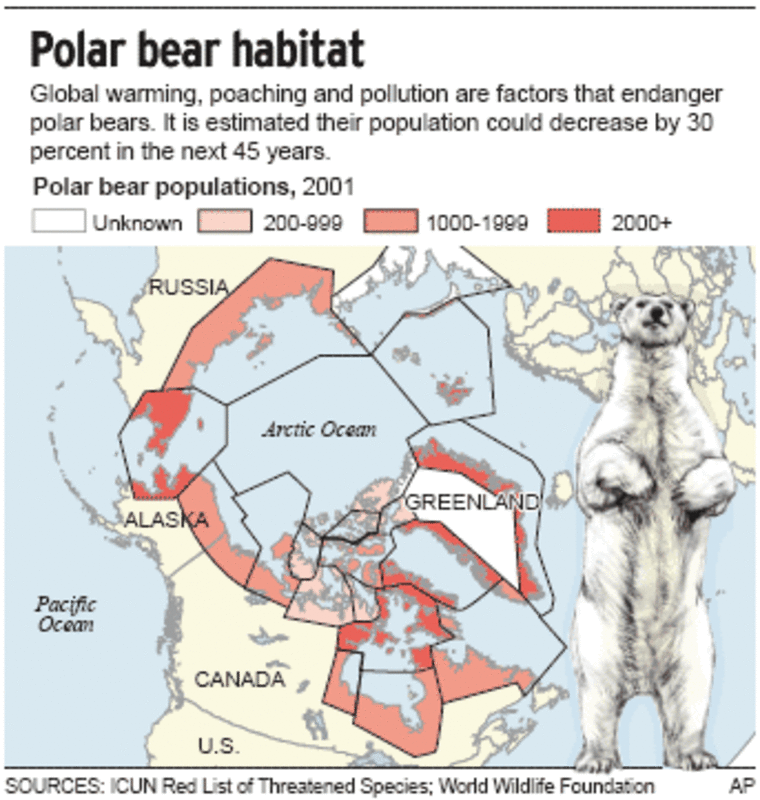What’s twice the size of Texas and vanished in 26 years? The summer sea ice that once floated on the Arctic Ocean off northern Alaska. Scientists fear that what’s left, a smaller, thinner ice sheet, could be gone by 2040.
Less sea ice would have some benefits: opening shipping lanes and potentially new oil reserves. Warmer Arctic waters already have expanded the feeding grounds for pollock and pink salmon, which are venturing farther north, and their populations could increase there.
But warming also threatens polar bears, which some experts predict could become extinct by 2100.
Now, some polar bears are drowning while trying to swim between ice floes that are farther apart than ever. Others are resorting to cannibalism, unable to find enough of their main prey, the seals that use sea ice to rest, give birth and raise pups.

‘Most compelling’ signal
John Walsh, a senior professor at the International Arctic Research Center at the University of Alaska-Fairbanks, calls melting sea ice “the most compelling” of Alaska's global warming signals.
Colleague Dave Atkinson says that “what’s been most surprising is the extent that the ice has pulled back in the last five years. Every year we thought it would reverse itself but it didn’t.”
The retreat also reinforces warming since there’s less of the ice’s white surface to reflect heat back into space. And the darker water absorbs heat, raising sea temperatures.
“It will definitely change the regional weather and perhaps the global climate,” says Larry Hinzman, director of the research center.
Ocean chemistry altered
In addition to warming, seas are absorbing more carbon as it slowly drifts down from the atmosphere. More carbon means a more acidic ocean, which is not hospitable to plankton, tiny organisms that serve as the staple for marine life.
The Bering Sea off western Alaska — the nation’s fish basket with half of all catches — “is expected to be impacted most immediately by our changing ocean chemistry,” federal scientists reported in April 2006.